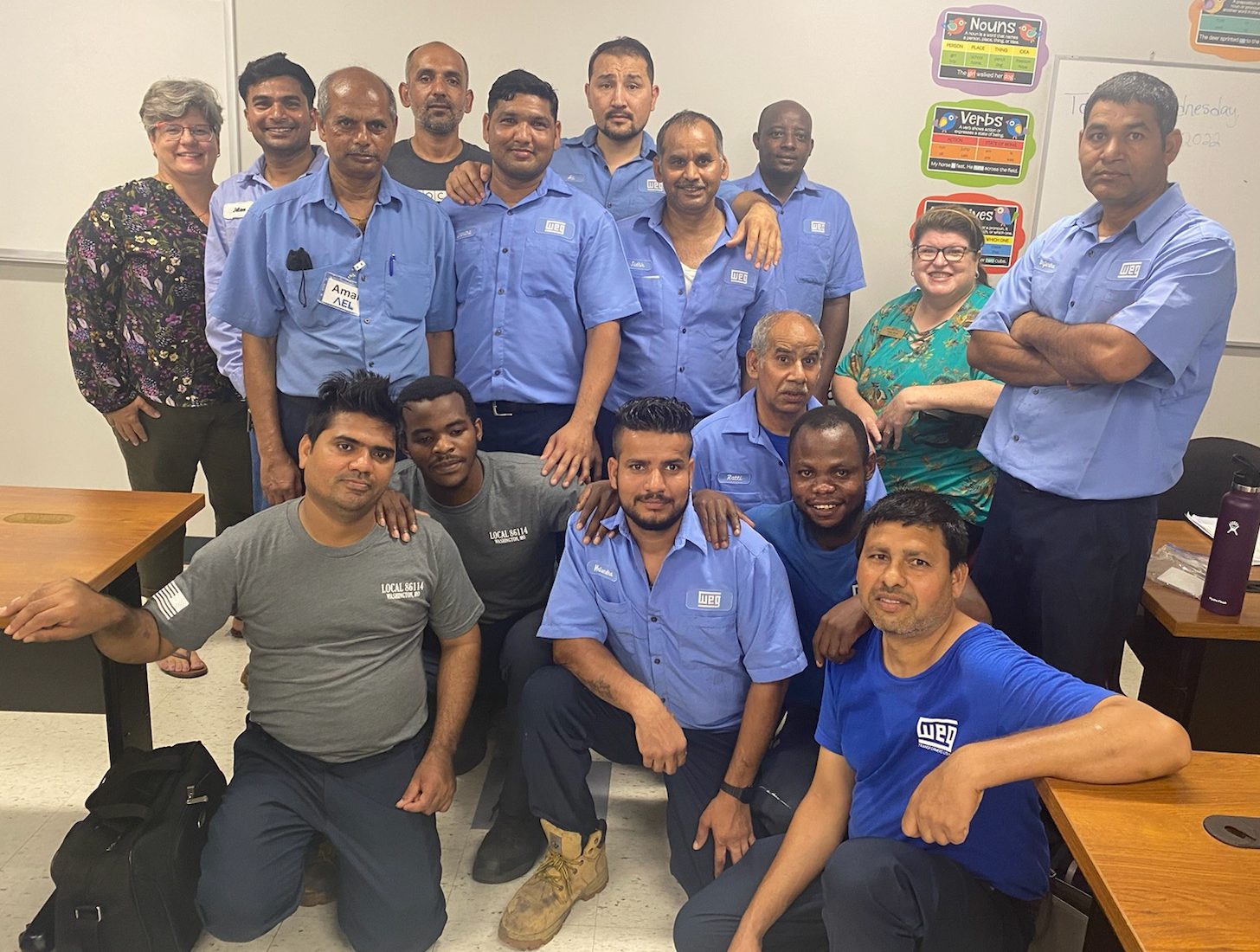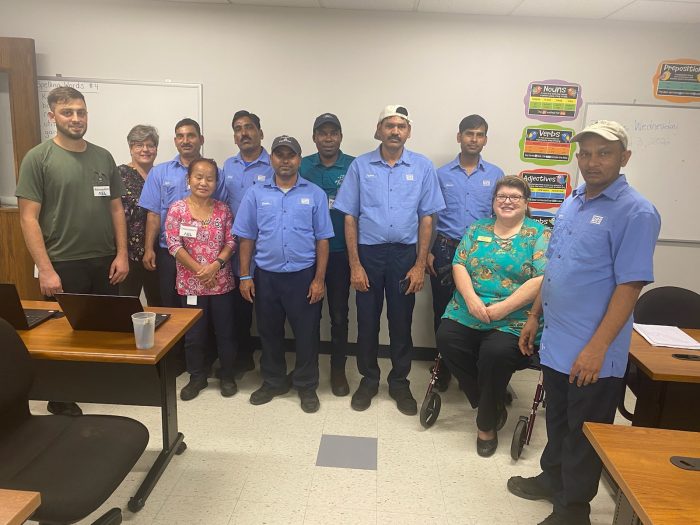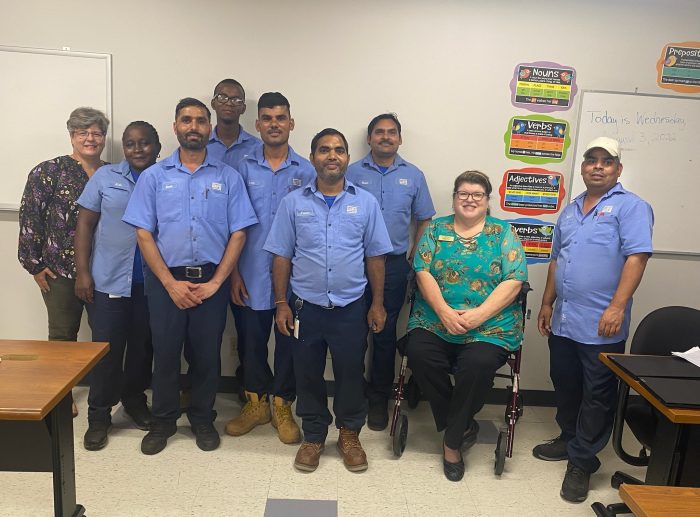
AEL Program Helps Washington Manufacturer Teach Employees English
There are 31 employees of a Washington manufacturer who are learning on the jobsite how to read, write, listen to, and speak English.
These employees — at WEG Transformers USA — are being taught English Language Acquisition (ELA) courses through the East Central College Adult Education and Literacy (AEL) program.
According to Alice Whalen, AEL director, the partnership has been fruitful.
“We have really seen their confidence grow, as well as their communications skills.” she said. “The students are enthusiastic to come to class — they are learning English and coming in with new vocabulary words.”
Whalen explained that the students joined WEG last year through the International Institute of St. Louis (IISTL) — an immigrant and job placement service/information hub which connects refugees and immigrants to a variety of opportunities in the St. Louis region.
The jobs range from entry-level to professional positions, within a variety of industries.
WEG is a multi-national manufacturing company that produces power and distribution transformers at its Washington plant for North America and overseas. Whalen added that the Washington manufacturer partnered with IISTL due to a shortage of workers to fill its second shift and new facility needs.
Then, in December 2021, the College’s AEL program met with WEG management and sculpted the plan to provide classes on-site during first and second shifts, helping the company maintain its workforce.
WEG Classes
According to Whalen, in February the 31 new WEG employees were assessed on their English skills, which determined the level of instruction they needed — beginner, intermediate or advanced.
The students meet for one hour, five days a week, in one of three sessions based on their schedule. There are three classes: two in the first shift, and one during second shift. The first two classes began in March, followed by the third class starting in April. The classes primarily target reading, writing, listening, and speaking English in the context of the workplace, including safety.
“The employees are taught workplace vocabulary, especially concerning safety,” Whalen said. “They also are taught about American culture and life skills.”

In addition to teaching the non-English speaking employees, the ELA classes also reinforce what the company supervisors are teaching their staff.
Challenges
The students hail from four countries and speak one of five native languages: Democratic Republic of Congo, Swahili; Afghanistan, Persian and Farsi; India, Hindi; and Rwanda, Kinyarwanda. Whalen noted that none of those native languages share roots with English, and there are few similarities between their languages and English. However, Hindi, Persian and Farsi have similar roots.
“Many of the employees have no English background, but the classmates support each other,” she said. “They help with translations when the teacher is unable to.”
Future Programs
Whalen said that this model could be replicated. She noted that this is the first for both WEG, and for the College’s AEL program. She added that there also are opportunities to teach High School Equivalency classes to prepare employees for the HiSET (formerly GED) exam. Whalen explained that American businesses lose more than $60 billion each year due to lack of employees’ basic skills.

According to Whalen, the benefits of adult education in the workforce include greater access to future training, more participation in meetings, direct cost savings and higher morale.
For more information about the AEL program, ELA classes or AEL in the workplace, contact Whalen at 636-584-6532 or alice.whalen@eastcentral.edu, and visit the ECC Adult Education and Learning page.
